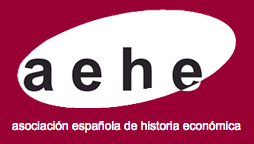Meat consumption and trade in historical perspective
DOI:
https://doi.org/10.33231/j.ihe.2025.02.07Resumen
This dissertation analyses the historical evolution of meat consumption and trade, focusing on Spain from the mid-20th century to the present while dedicating a chapter to a global perspective during the first globalization. Initially shaped by a Mediterranean diet and low meat intake, Spain underwent rapid economic growth in the 1960s, fuelling an increase in meat consumption and the adoption of intensive livestock systems. By the 1980s–1990s, per capita consumption was higher than in most European countries. The thesis aims to show the role of prices, income, and preferences in the evolution of meat consumption during this period. Inequalities disappeared in the 1980s but re-emerged later due to the consumption of more expensive processed meats. The global chapter highlights the role of England as the world’s main importer and the peculiarities of meat in trade during the first globalization. During the second globalization, Spain evolved into a leading pork exporter, boosted by the Home Market Effect, EU accession, and new demand from markets such as China.
Descargas
Descargas
Publicado
Cómo citar
Número
Sección
Licencia
Derechos de autor 2025 Pablo Delgado

Esta obra está bajo una licencia internacional Creative Commons Atribución-NoComercial-SinDerivadas 4.0.
Aquellos autores/as que tengan publicaciones con esta revista, aceptan los términos siguientes
- Los autores/as conservarán sus derechos de autor y garantizarán a la revista el derecho de primera publicación de su obra, el cuál estará simultáneamente sujeto a la Licencia de reconocimiento de Creative Commons Reconocimiento-No comercial-Sin obra derivada 4.0 Internacional que permite a terceros compartir la obra siempre que se indique su autor y su primera publicación esta revista, y no permite hacer uso comercial de la misma ni tampoco obras derivadas.
- Los autores/as podrán adoptar otros acuerdos de licencia no exclusiva de distribución de la versión de la obra publicada (p. ej.: depositarla en un archivo telemático institucional o publicarla en un volumen monográfico) siempre que se indique la publicación inicial en esta revista.
Plagio y fraude científico
La publicación de un trabajo que atente contra los derechos de propiedad intelectual será responsabilidad de los autores/as, que serán los que asuman los conflictos que pudieran tener lugar por razones de derechos de autor. Los conflictos más importantes pueden darse por la comisión de plagios y fraudes científicos.
Se entiende por plagio:
- Presentar el trabajo ajeno como propio.
- Adoptar palabras o ideas de otros autores sin el debido reconocimiento.
- No emplear las comillas u otro formato distintivo en una cita literal.
- Dar información incorrecta sobre la verdadera fuente de una cita.
- El parafraseo de una fuente sin mencionar la fuente.
- El parafraseo abusivo, incluso si se menciona la fuente.
Las prácticas constitutivas de fraude científico son las siguientes:
- Fabricación, falsificación u omisión de datos y plagio.
- Publicación duplicada.
- Conflictos de autoría.






